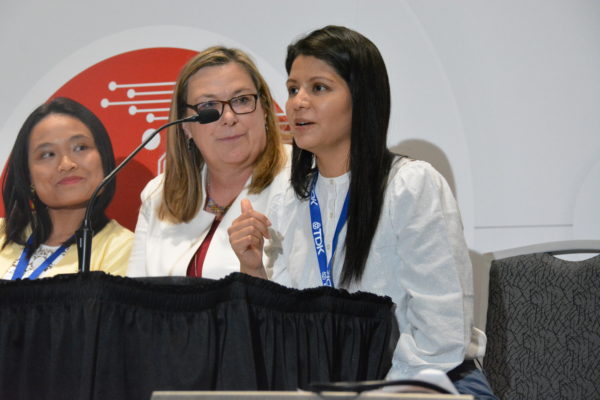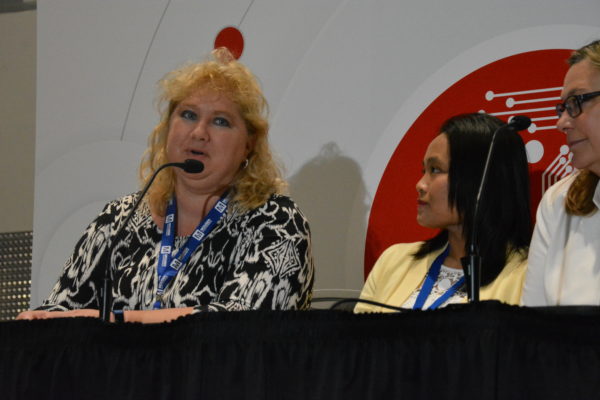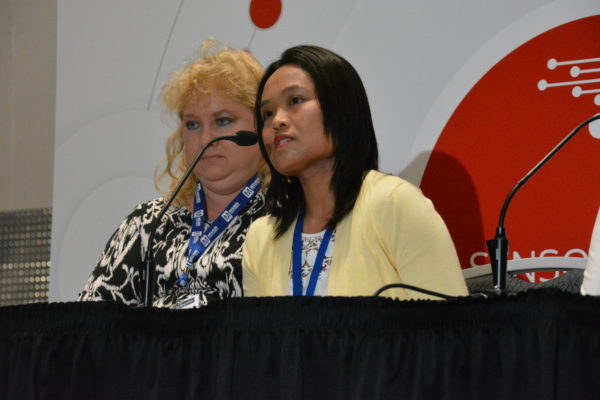by Dot Cannon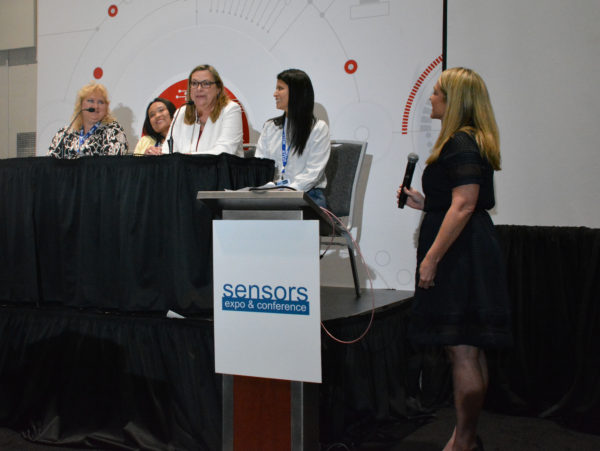
Leadership and confidence were central themes during the fourth annual Women In Sensors Engineering (WISE) panel.
The panel, featuring four prominent female engineers, took place at the end of Day One of the 2019 Sensors Expo and Conference, on Wednesday afternoon in San Jose’s McEnery Convention Center.
The panelists discussed challenges and triumphs of their constantly-evolving profession. But their insights were pertinent to just about every workplace.
Navigating a fast-changing field
“What’s one of the greatest challenges you faced, in the past year?” asked moderator Angie Keller, Senior Vice President at Randstad Engineering.
Melissa Saelzer, Facebook Reality Labs Technical Program manager, answered with a familiar issue. “Working in a corporation where you are almost defensively working.”
Asked how she dealt with the stress, Melissa said, “I think a lot of communication is helpful, and calming to everyone (affected).”
Leadership through inclusion–and information
“We hear so much about inclusion,” Angie said. “I’d like to know what (you consider) the greatest skill of a leader is.”
“Creating a culture of sharing,” answered Shell IOT COE Manager Marlena Nickel Johnson. “Diversity equals power, because the more powerful teams have diverse people (in leadership). (And) making sure you are in a place where you feel welcomed.”
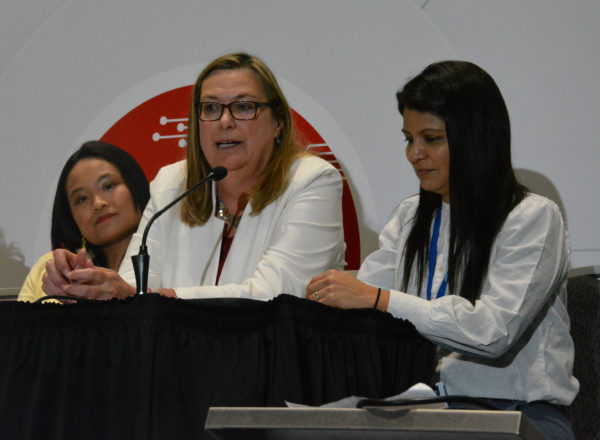
“To be an empathetic leader,” responded Intel Corporation Principal Engineer Melanie Daniels. “(It’s not something you get from a book.). It’s something that you live.”
“I think when we work with our peers…we have to have a framework where people can give feedback constantly,” offered Melissa.
Citing an earlier report from the Society of Women Engineers, that organizational climate was the reason thirty percent of employees said they left a position, Angie asked the panel how they, as leaders, created a welcoming work environment.
“I think to be part of a team, you have to be a hard worker. You have to be kind,” Melanie said. “You have to do favors for others, you have to be kind and giving. Always keep your eye on the goal.”
Staying in charge
When Angie asked about building a good career path, Sisu Co-Founder Jocelyn Tan brought up a common challenge.
“Know your limits, being able to say ‘no’. (That includes saying ) ‘no’ to myself. ‘I’m not going to take on this new task. It will overwhelm me.'”
“Every year, write down goals,” Melissa said. “It’s just for you, so you can prioritize it if you want.”
Up came the topic of work-life balance, and how the women achieved it.
“There’s always going to be surprises,” Jocelyn said. “Something that’s going to obscure the path that I’m on. So I plan downtime.”
“To me, there’s really no such thing as work-life balance,” Melanie commented. “So if you become unbalanced and your well runs dry, it’s your fault.”
Two kinds of advice
Angie asked her panel what they considered the best advice they’d ever received.
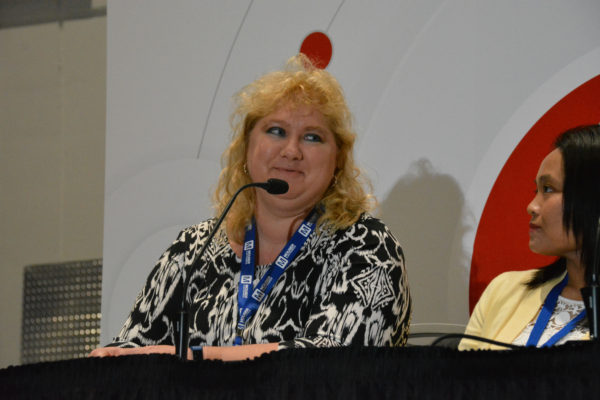
“Demonstrate your presence, your confidence and always share your strengths,” Marlena contributed.
“Making sure that if you feel something, don’t discredit that,” Jocelyn answered. “Knowing yourself, and knowing your emotional state. And being able to release that or cope in appropriate ways.”
Melanie referenced guidance she’d received from a colleague at the start of her career.
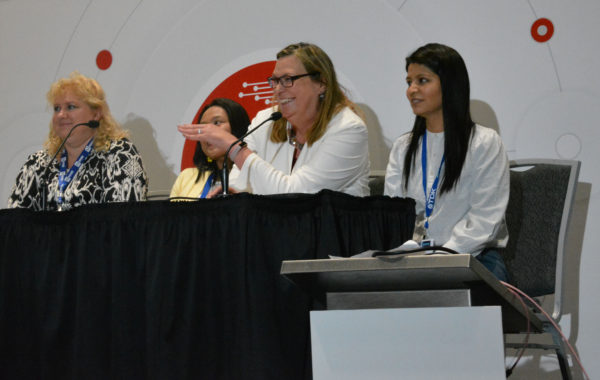
“He said, ‘There are three kinds of people. Those who jump into a task, those who wait to see what happens and those who say, ‘we’ve never done it that way’. Focus 70 percent of your time on the first third, 30 percent on the second, and ignore the bottom third.'”
Then, the women explored the other side of the question.
What advice, Angie asked, might they give the next generation of engineers?
“To stay on top of the emerging digital technologies,” Marlena answered. “There are jobs being created now that didn’t exist five years ago.”
“When you’re first starting out, you need to build your skills,” Melanie said. “That means becoming an expert in something.”
Towards a better future
Just before the question-and-answer period, Angie and her panel addressed an ongoing problem: the underrepresentation of women in STEM fields.
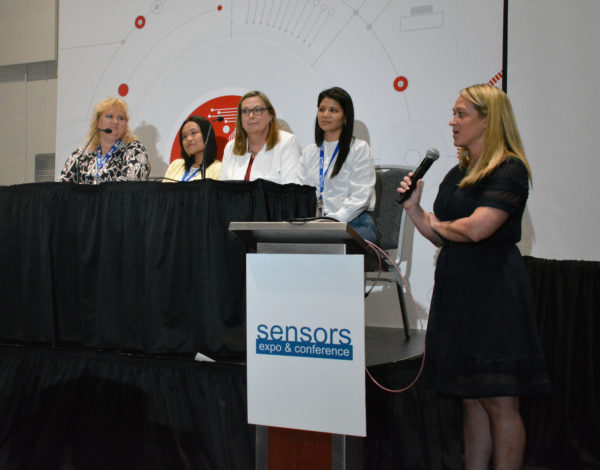
“How do we make strides to close the gap?” Angie asked.
“A really good, supportive network,” Melissa replied. “Meeting other people (who) care about (helping you grow), that is really helpful.”
“I have a daughter,” Melanie said, “and since she was born, she was going to be an engineer. She still ended up technical, but not an engineer. Take the harder classes, stay (caught) up with everybody, you can decide (on your area) later.”
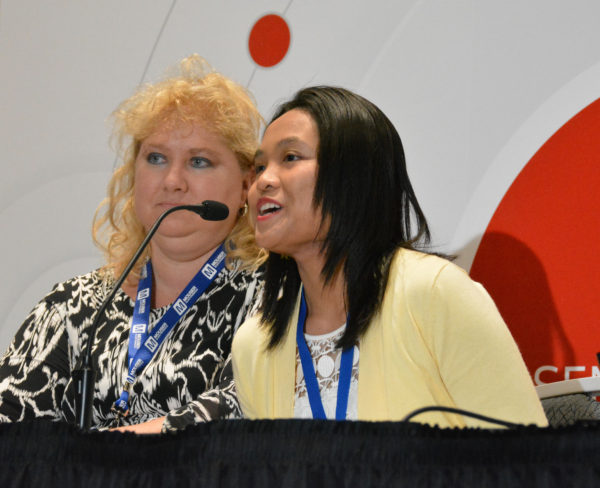
“Don’t control the chaos,” Jocelyn said. “Just let them be free to do what they need to do. We have to be cognizant about how we treat other people, and how we treat ourselves.”
Marlena brought up a startling statistic.
“Men will apply for a position where they only meet 60 percent of the qualifications,” she said. “A woman will only apply if she meets 100 percent.”
“Someone told me once, if you’re not scared of the next position, you’re not challenged enough,” Angie commented.
Panelists laughed and agreed.
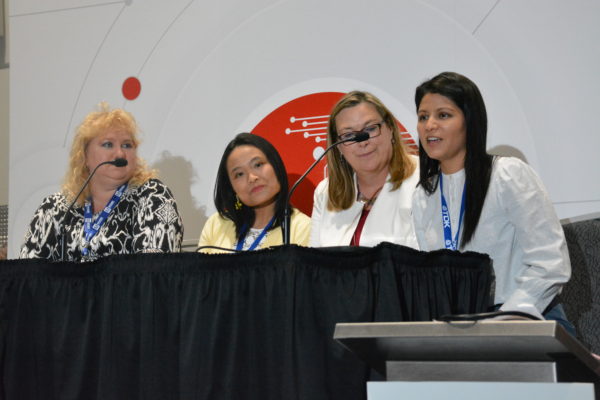
“I’ve been scared of the last three jobs I had,” Melissa said.
“I’ve been in an environment where I was the only woman,” Melanie added.
“You just have to be brave.”

